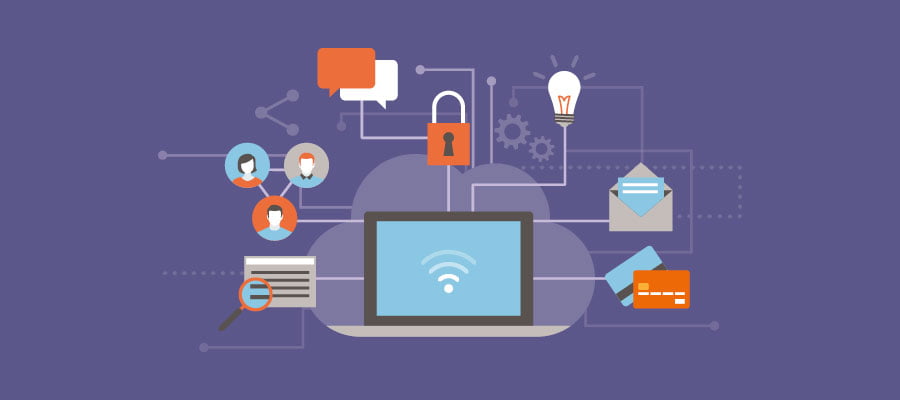When a business encourages its workers to work from a remote location, it has to ensure that the business data handled by the workers remains secured. The section below talks about 5 data security tools that you can provide your remote employees with.
1. VPN or Virtual Private Network
Remote working may expose sensitive business data to various security risks. Cybercriminals might end up intercepting unencrypted connections and gain access to confidential company information like passwords.
The easiest way to manage this problem is the implementation of a VPN or virtual private network. Businesses use VPN as a cybersecurity tool for effectively safeguarding various information their remote employees receive and send online. By making your employees use a VPN, you will also ensure that their internet connections are duly protected from unauthorized invasions.
A VPN will make the personal info, transmitted data, web session, and financial transactions of your employees more secure irrespective of their location.
2. Firewalls
You cannot expect your company’s data to be safe if you fail to ensure that your remote employees’ network is protected. For doing so, you will have to filter their network traffic and block outsiders from getting unauthorized access to the sensitive data stored in their computer/laptop.
The tool that can perform the above tasks to keep your employees’ network protected is a Firewall or next-gen firewall (NGFW) with IPS or intrusion protection. These tools monitor both outgoing and incoming network traffic and decide whether specific actions should be blocked or allowed on a given network. At times, firewalls block/allow actions based on findings of advanced analyses or DPI (deep packet inspections).
The best thing about firewalls is that they are extremely easy to implement and have no visible impact on regular operations.
3. A Strong Antivirus and Antimalware
If you have employees who work from a remote location, you will have to share your company database with them irrespective of the fact whether they are using their own machine, or a laptop provided by the company. If you can afford it, you should provide all your remote workers with a laptop. This will ensure that they have access to all the required data security tools pre-installed in their system.
If that’s not possible, your sensitive business data will always be at risk of getting compromised. Hackers and other cybercriminals use viruses, malware, and ransomware to gain access to confidential business information including bank details, the contact information of customers, and more.
The easiest way to deal with this problem is by providing your employees with the updated version of a quality antivirus and antimalware. These tools will not allow any virus, malware, or ransomware to infect your employees’ computers and thereby reduce the chances of data theft.
4. Cloud Storage Container
When employees work in an office, the employer ensures that all the works completed by those professionals are copied and saved on a separate medium as a backup. However, that rarely happens when the workers work remotely. Storing copies of all company data on a separate medium is crucial for staying protected against corruption or primary data loss.
If you have the backup ready, you will be able to recover files whenever there’s a primary data failure. For your information, primary data failure can occur due to software or hardware failure, malicious attacks by hackers, data corruption, as well as accidental data deletion.
Today, the best option you have to keep your business data saved in a cloud storage container. Cloud storage containers save data across redundant servers. This means that even if a data center collapses, there will be other data centers for managing your data. You will lose your data only if all data centers of the cloud storage service provider collapse, which is an impossible phenomenon.
5. Post Infection Removal Tool
Imagine a situation where all your attempts to prevent a malware attack have failed and you have an unusable, infected system left with you. This is unlikely to happen if you use the above tools; however, still, you should be prepared to deal with the situation.
The best solution to the above-mentioned problem would be an emergency kit designed to scan and clean infected computers. These tools can be mounted on a USB stick and used for portable scanning.
Conclusion
As an employer, you must guide your remote employees on cybersecurity and the tools that can help them to keep your business data secured. Provide them with the above tools to run your business smoothly even during these difficult times.
